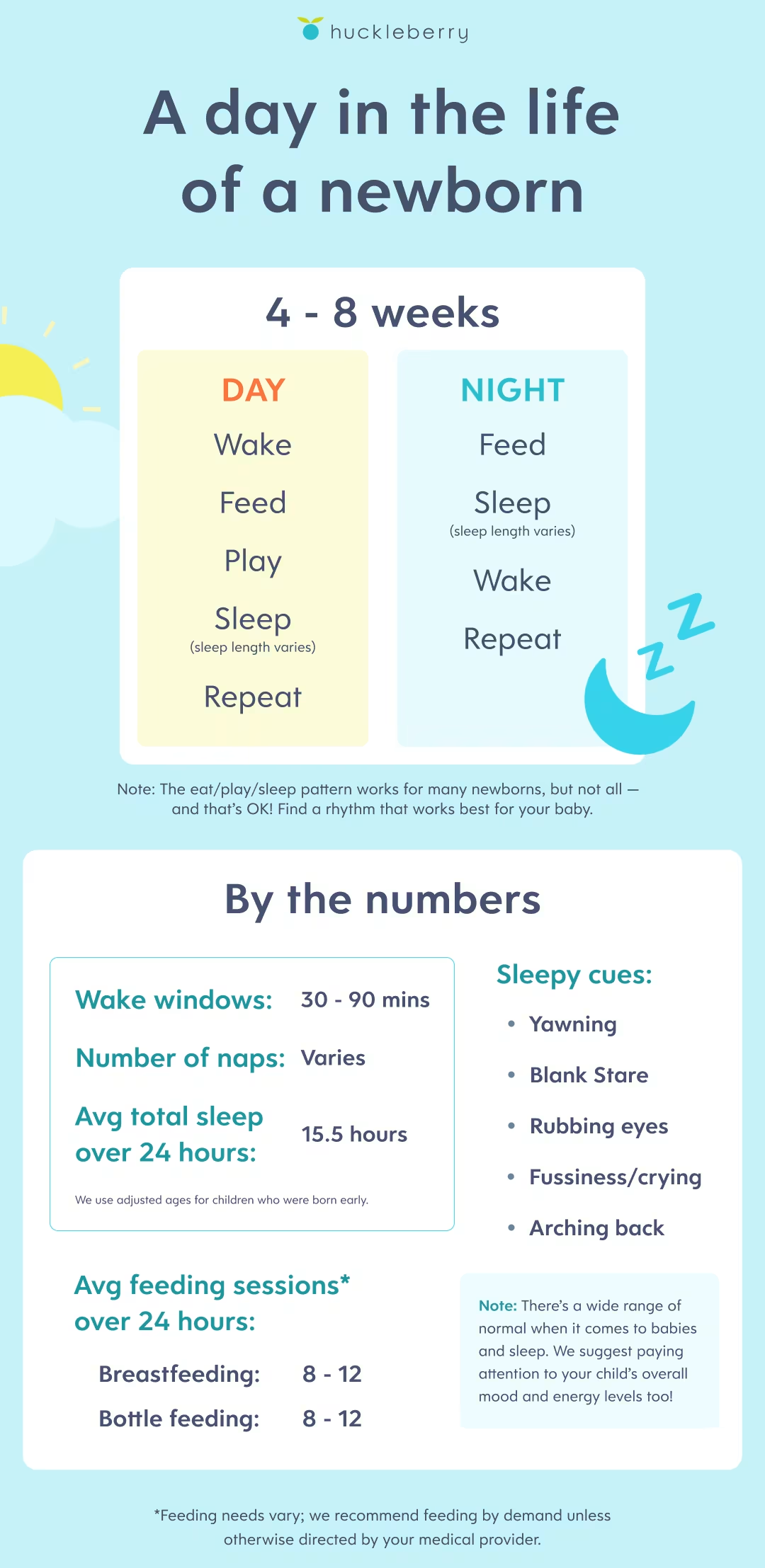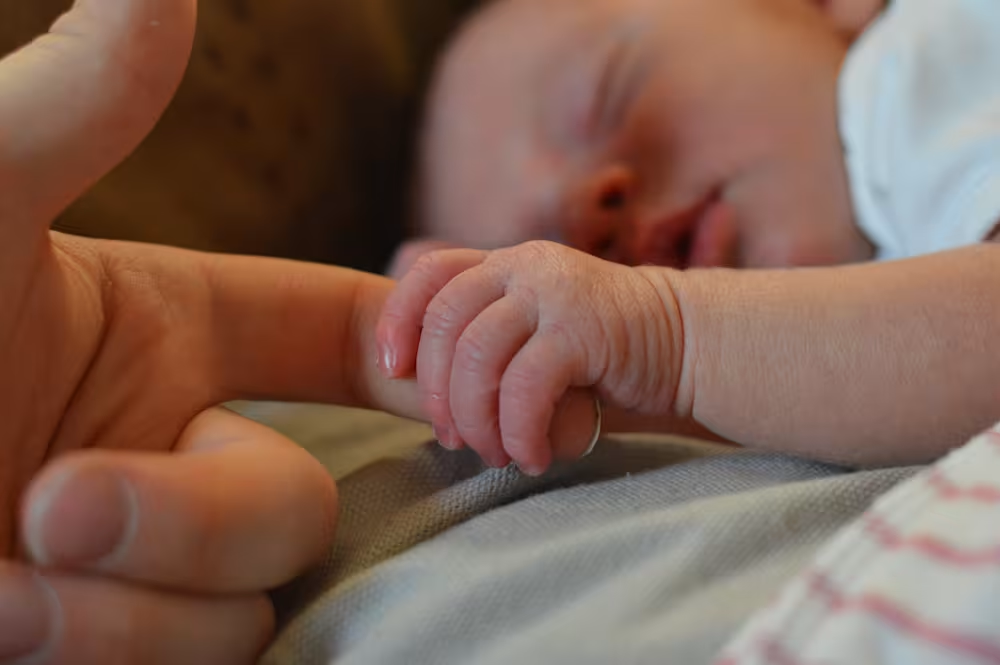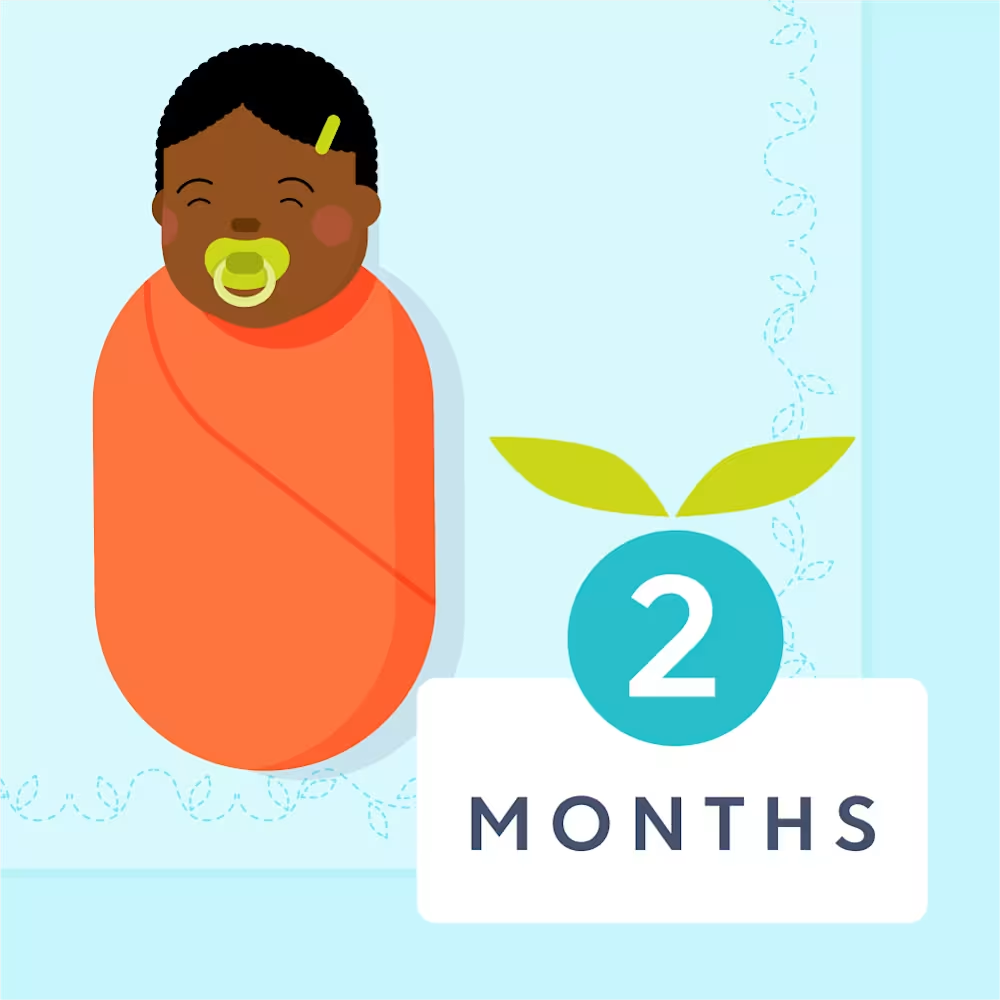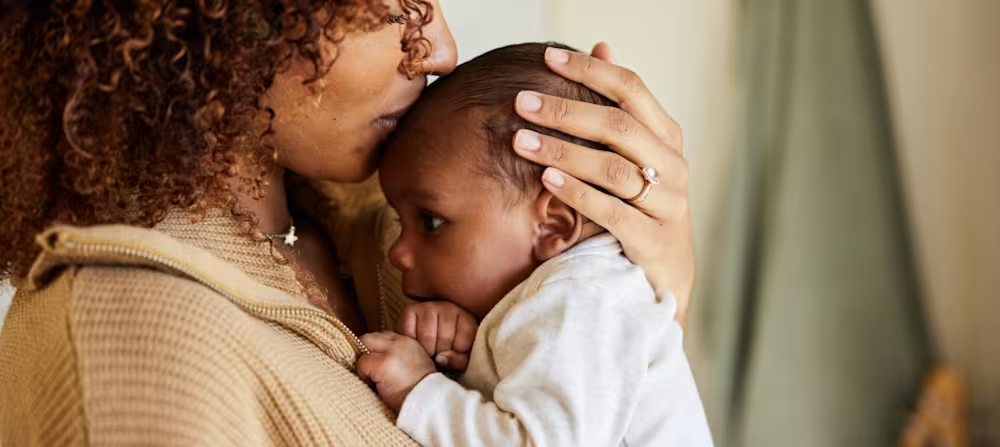1 month / 4 week old sleep schedule: Bedtime and nap schedules
Updated Dec 15, 2025

Sleep can be pretty chaotic during the newborn period, as babies won’t start following a typical 24-hour cycle for sleeping and eating until they reach 3 - 4 months old. While we don’t expect any regularity in terms of a schedule at this age, we’ve got all you need to know about 1 month old wake windows and sleep patterns.
How much should a 1 month old sleep?
At this age, we hope to see about 15.5 hours of sleep in a 24-hour period. However, sleep ranges vary throughout childhood so it can be helpful to look at more than the number of hours your child has slept. Instead, we recommend monitoring your baby’s mood and energy levels in addition to viewing the recommended hours as a general guide.
Most babies at 1 month are only able to comfortably stay awake for 30 - 90 minutes at a time, so expect lots of daytime sleep at this age. It’s very common to feel like all you’re doing is changing diapers and feeding your baby before it’s time for them to sleep again!
Here's a quick overview of what you may expect when it comes to 1 month olds and sleep. Note that these figures are averages and should be used as guidelines.
Top sleep tips for 1 month old babies
Many families find it helpful to follow an “eat, play, sleep” routine in the early months. This means that you feed your baby when they wake and then follow it up with an activity period before it's time to sleep again. Don’t worry if your “play” period is only long enough for a diaper change and some eye contact before they’re ready for sleep again.
A word of caution: Be sure to reevaluate as your baby gets older. While this routine works well for newborns, it can sometimes lead to short naps by 3 - 5 months old. As wake windows lengthen, feeding times often need to be adjusted so that your baby doesn't wake early from a nap due to hunger.
Sample 1 month old sleep schedule
A 1 month sleep "schedule" will likely be unpredictable. Sleep times and durations will vary day to day and this is normal! Here's what a day in the life of a 1 month old newborn may look like:

Naptime schedule for a 1 month old baby
How long should a 1 month old nap?
Expect your baby’s nap lengths to be unpredictable at this age. Since babies aren’t born with predictable or organized sleep cycles [], your baby may nap for 10 minutes or 2 hours. The important thing to remember is that your baby will usually need to drift off after a wake period of 30 - 90 minutes.
How many naps should a 1 month old take in a day?
Since babies do not have an organized circadian rhythm in the first month of life, it can be difficult to determine what constitutes a nap and what constitutes nighttime sleep []. We don’t recommend trying to follow a specific baby sleep schedule at this age. Newborn sleep tends to be without a pattern, meaning you’re likely to see both short and long periods of sleep punctuated by frequent wakings for nourishment and comfort. Your newborn will spend most of their time in light sleep; we can’t control or predict when deep sleep will happen or how long naps will be until they’re older.
Bedtime for a 1 month old
What time should a 1 month old go to bed?
Your baby may have a very late bedtime at this age. Since a newborn’s schedule is irregular at this stage of development, don’t be surprised if the longest stretch of sleep starts at 10:00 PM or even much later. A 1 month old’s sleep schedule will often be on the later side. However, by 3 - 4 months of age, most babies will be ready for an earlier bedtime.
Why does my 1 month old keep waking up at night crying?
It’s expected that 1 month olds will wake up overnight to eat and also for snuggles. Newborns at 1 month typically go around 2 - 3 hours between feeds so it’s normal if your little one is waking 2 - 3 times (or more) overnight. While overnight waking and night feeding are tiring for caregivers, most babies aren’t typically physiologically capable of until closer to 6 months.
Is there a sleep regression at 1 month old?
Newborns don’t have sleep regressions because sleep is so irregular during these first few months of life — there aren’t consistent patterns at this point to regress from. If a newborn's sleep seems to change suddenly, it’s usually due to growth spurts, cluster feeding, or adjusting to life outside the womb, rather than what we'd call a regression. It’s expected that your 1 month old will wake frequently during the day (and night!) at this point. Little ones don’t have regular 24-hour cycles of eating and sleeping until closer to 3 - 4 months.
Can my 1 month old sleep with a pacifier?
Pacifiers can be used at 1 month. Generally, they can be used from birth. However, if your baby is nursing, the AAP recommends [] holding off on offering a pacifier until nursing is well-established, usually around this age. However, there’s a lack of evidence [] to support offering a pacifier too early may cause “nipple confusion.”
Using a pacifier may also provide comfort and reduce the risk of sudden infant death syndrome (SIDS). It’s frequently recommended for low-birth weight or preterm babies [] to help develop their sucking reflex.
Should I swaddle my 1 month old?
Swaddling a 1 month old baby is often a way to make them feel secure and also promote sleep. Swaddles can help prevent the Moro reflex [] from startling sleeping newborns awake, potentially allowing for a longer rest period.
Some things to remember when swaddling include:
Per AAP safety guidelines, babies should always be placed on their backs for sleep (whether or not they’re swaddled) [].
Practice “hip-healthy” swaddling practices, meaning your child’s legs can bend up and out freely. Doing so helps prevent hip dysplasia [].
No longer swaddle your baby as soon as they show any signs of rolling over, which may be as early as 2 months old.
Can I sleep train a 1 month old?
It’s expected that newborn sleep is chaotic at 1 month, and sleep training yet. It’s normal for little ones at this age to need help from a caregiver to fall asleep and stay asleep! If you’re looking for ways to help your baby , you can start with some of our for healthy newborn sleep hygiene.
Can a 1 month old sleep on their stomach or side?
A 1 week old should always be placed on their back on a firm, flat surface for sleep — not their stomach or side — per the AAP’s safe sleep guidelines []. Once your baby can comfortably roll both ways (back to front and front to back), you can let them sleep in a different position without returning them to their back.
What are the developmental milestones for a 1 month old?
While your little one isn’t quite ready for those big motor milestones like sitting or rolling in the , there are plenty of other milestones to celebrate as your newborn grows and develops this month:
Returns to birthweight at around 2 weeks then shows a consistent pattern of weight gain
Brings hands close to eyes and mouth
Keeps fists clenched
Displays newborn reflexes like rooting, sucking, Moro, grasp, and stepping reflexes
Does a 1 month old need to eat during the night?
at night? It’s developmentally appropriate for newborns at 1 month to wake multiple times overnight for hunger and comfort. Babies at this age will wake during the day and night to eat since their stomachs are so [] tiny and require small, frequent feedings. As your little one’s stomach grows and can hold more food, your baby may be able to go longer stretches overnight between feedings. Still, it’s common for babies to continue eating at night [] through around 6 months.
Takeaway
Daily sleep needs: We recommend aiming for about 15.5 hours of total sleep in a 24-hour period for babies at 1 month. Since newborn sleep is often unpredictable, we won’t expect to see a set number of naps per day. Each day will likely look different and that’s normal!
Wake windows: 1 month olds can usually stay awake for 30 - 90 minutes at a time. The exactly amount will vary throughout the day as well as day to day. It will likely feel like you only have time to change your little one’s diaper and feed them before it’s back to sleep again.
Routines at 4 weeks: Many families find an “eat, play, sleep” routine helpful in the early months. At 1 month, the “play” period may only be a diaper change and a minute of tummy time before they’re ready for another nap.
If you're curious about what lies ahead in the coming month (and even for the year ahead!), glimpse into the future to see what you might experience when it comes to a . Also brush up on what you should know about .
Share article:
Note: The content on this site is for informational purposes only and should not replace medical advice from your doctor, pediatrician, or medical professional. If you have questions or concerns, you should contact a medical professional.
9 Sources
Share article:






